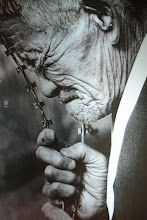I find it difficult to understand how advanced the ancient civilizations were, from Greece, to Egypt, to Rome. These places and others truly reaches a level of advancement that we find very hard to appreciate from this day and age. Things we cannot even do today. They had running water to a city, working sewage systems, advanced politics, architectural wonders, even y today's standards.
And they all fell. They reached a peak, and then fell. I believe this is due to their own arrogance, "We have made it so far, We can do anything, Nothing can stop us now". If history has shown us anything, it is that what goes up, must come down. Why don't we learn from history, taking the ancient part away, the Islamic Empire was also very advanced and at it is very hard to appreciate that. They fell too. They are still recovering from that fall, but sometimes still maintain the arrogance that came with it, hence causing a difficulty to rise up again.

Todays civilization should have a serious look at history. We must appreciate the advancements of the past, appreciate our own advancements, be proud of the work we have done. That is the easy part. We must also know at all times that the work we do and the advances we make can all be taken away and lost, and we may fall just as all civilizations before have. We need to keep this in mind in order to destroy the seeds of arrogance and nurture the seeds of humbleness.






